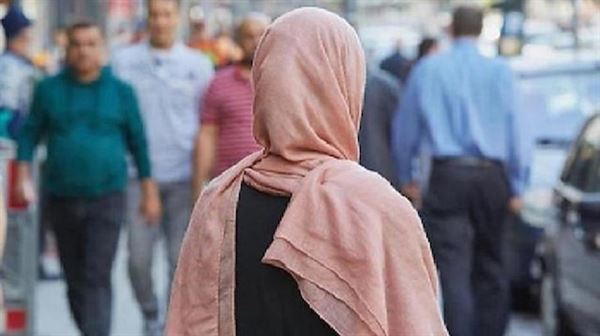Germany marks the 30th anniversary of the fall of the Berlin Wall this week, but growing xenophobia and Islamophobia in especially formerly communist
Germany marks the 30th anniversary of the fall of the Berlin Wall this week, but growing xenophobia and Islamophobia in especially formerly communist East Germany is seriously threatening the country’s national security.
Three decades after the collapse of the Berlin Wall, German authorities are grappling with the rise of far-right ideology in the eastern part of the country.
The most damning evidence is the rise of the far-right Alternative for Germany (AfD) party, which crept into the Bundestag in 2017; in parts of eastern Germany it is the most popular party.
The AfD is in fact riding a shocking rise of German Islamophobia and xenophobia. In its annual report on the state of German unity, the German government has warned that Eastern Germany’s xenophobia represents a danger to social harmony.
Repeated attacks against refugee centers and Islamic centers in Eastern Germany are proof of the fact that these xenophobic violent acts are a serious danger to Germany’s national security.
A case in point was the East Germany-based neo-Nazi terror cell the National Socialist Underground (NSU) which was involved in anti-foreigner killings from 2000-2007.
It took German authorities almost a decade to connect 10 murders against mostly Turkish business owners and trace them to the NSU, sparking an investigative committee in the German Parliament and a national outcry about authorities’ blind spots to right-wing terrorism.
The NSU’s racially motivated attacks still resonate to this day. Over the past week, high-level politicians from parties representing the whole German political spectrum have received death threats.
This past summer, one of those threats became reality when regional politician Walter Lubcke was gunned down in his home in central Germany. And in October, a right-wing extremist gunman killed two in the eastern city of Halle, after failing to gain entry into a synagogue to carry out a massacre on a Jewish holiday.
Deep-rooted Islamophobia
Around half of the German population has concerns about Islam, according to a recent study on democracy and religious tolerance. But what is the reason behind the negative feeling toward Islam felt by many?
While Germans are generally viewed as tolerant, their attitude toward Muslims is different. This is indicated by a study published by the Bertelsmann Stiftung’s ‘Religion Monitor’.
According to the research, the majority of German citizens (87%) are open to other world views.
But 52% perceive the religion of Islam as a threat. For Germans living in eastern states, the number of people who feel this way (57%) is higher than those in the west of the country where 50% view the religion as a threat.
“Obviously many people currently see Islam less as a religion than as a political ideology and therefore exclude it from religious tolerance,” said the foundation’s religion expert Yasemin El-Menouar.
In her view, social debates and media reports in recent years, which often put Islam in a negative light, have contributed to these attitudes.
El-Menouar said there was cause for concern because these fears over Islam can be exploited by far-right populist groups.
According to the “Weltanschauliche Vielfalt und Demokratie” (World View Diversity and Democracy) study, 30% of respondents in the east of Germany do not want Muslims as neighbors, compared to 16% in the west.
A country of over 81 million people, Germany is home to the second-largest Muslim population in Western Europe after France. Among the country’s nearly 4.7 million Muslims, at least three million are of Turkish origin.
Why do East Germans feel this way?
According to Dresden-based political scientist Werner Patzelt, the reason for the concerns against Muslims can be traced back to German Chancellor Angela Merkel’s decision to keep the borders open during the height of the refugee crisis in 2016.
“As a whole, it’s because of the immigration politics of Chancellor Merkel back in 2015,” he said.
“Germany has had a significant Muslim minority for many years which was a Turkish minority, without significant problems. This was something that passed as normal and nothing to worry about.”
However, Patzelt said when Merkel made the controversial decision to allow refugees and migrants to enter the country, German attitudes changed.
He said crimes reportedly committed by asylum seekers and refugees, such as the cases of sexual assault in Cologne in New Year 2015 “gave reason for widespread worries” which added fuel to the fire.
When it comes to eastern Germany, Patzelt said the region has never experienced significant immigration from Muslim countries before, and many people did not want it.
Protests, such as the anti-Islam Pegida demonstrations, which started in the eastern German city of Dresden in 2014, explicitly called for no Muslim immigration into Germany.
Patzelt said these protests “gave voice to many east Germans who have the same anti-Muslim sentiment”.
However, because politicians dismissed these demonstrations, anger grew, said Patzelt.
This partly explains why far-right parties such as AfD have grown in support, particularly in eastern German regions.
Along with the anti-Islam sentiment, many people also feel strongly against Merkel and the German political elite, which three decades after the fall of the Berlin Wall has led to a mounting societal polarization.
